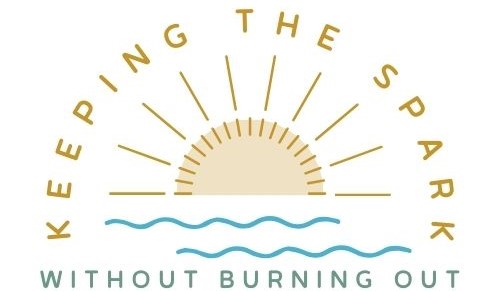
2026 Clinical Supervision Online Series
Available to all levels of supervisors within the field of mental health and substance use treatment:
Join us for a five-part series of clinical supervision as we explore a wide variety of topics central to successful supervision. Expect an informative, useful, and unusually fresh experience while you gain the knowledge, skills, and continuing education hours necessary to propel your career forward.
| Date & Time | Topic | Presenter |
| 3/7/2026 | Multisystemic Therapy – Breaking the Cycle | Corey Baker |
| 3/21/2026 | Self-Care for Clinical Supervisors: Sustaining Excellence While Caring for Yourself | Brittany Greene |
| 4/11/2026 | Clinical Supervision through a Values Lens: Alignment, Moral Injury, and Sustainable Practice | Jason Black |
| 4/25/2026 |
Breaking Ground: Men's Mental Health, Renewal, and the Courage to Grow |
Blaise Harris |
| 5/9/2026 | Supervising Through a Family Lens: Supporting Caregivers of Children with IDD and Complex Needs | Amy Dickey |
TARGET AUDIENCE
- All levels of supervisors within the field of mental health and substance use treatment wishing to improve their skills, knowledge, and abilities while also contributing to the professional growth of their colleagues.
- Practitioners wishing to fulfill the NCSAPPB educational requirements in becoming a Certified Clinical Supervisor.
- Current Certified Clinical Supervisors wishing to fulfill NCSAPPB renewal requirements.
REGISTRATION: Pre-registration is required to attend. Registration for the online sessions is $40 per session. Fees include credit hours and training materials.
MODALITY: The Clinical Supervision Series is divided into two (2) parts; five online sessions and a 2.5-day retreat. The five (5) online sessions in this series consist of three hours of instruction, which consist of one fifteen-minute break in each session. Several topics trained in the online sessions will take a deeper dive into the material during the retreat. These topics consists of 2 parts; the online session and the retreat breakout session which explores these topic in greater detail. Each online session will provide 3 contact hours, and the retreat will provide 15 contact hours. The retreat will require pre-work and post-work to be completed to obtain the full 15 contact hours from the retreat. A total of 30 contact hours will be provided through the Clinical Supervision Series.
TIMES: Online Sessions: 9:00am to 12:15pm
The University of North Carolina at Chapel Hill School of Social Work has been approved by NBCC as an Approved Continuing Education Provider, ACEP No. 6642. Programs that do not qualify for NBCC credit are clearly identified. The University of North Carolina at Chapel Hill School of Social Work is solely responsible for all aspects of the programs. The successful completion of each webinar qualifies for 3 contact hours.
Confirmation Notices and Certificates of Completion: We will confirm your registration by email. Successful completion includes full attendance for the entire day. Within 7 days of the conclusion of the event, you will receive an email notifying you that the evaluations and certificates are ready. The email will include a link to https://bhs.unc.edu where you can login using the username and password you chose at registration. Once you have logged in, you will see the training titles listed under "My Courses" on the left side. After clicking on the link, you will be taken to another page where you can click the link to the event evaluation. Once you have completed and submitted your evaluation, you can click on the link to access the Certificate of Completion. Your Certificate will be available to you as a PDF document for you to save or print.
POLICIES & ADA STATEMENT
Refund Policy: Refunds will be issued up to two weeks prior to the training date.
Inclement Weather Policy: Any announcements regarding changes to the schedule due to inclement weather will be posted on http://bhs.unc.edu. Registered participants will also be notified by email.
ADA statement: If you require any of the auxiliary aids or services identified in the Americans with Disabilities Act in order to participate in this program, please call us at (919) 843-6083 no later than ten business days before the program.
TESTIMONIALS
"As a result of the clinical supervision training series offered through UNC Chapel Hill School of Social Work and Behavioral Health Springboard I feel that I have grown as a clinician as well as a clinical supervisor. The information presented was relevant to my current position as a clinical supervisor and I believe it has already been helpful to my supervisees. I would recommend this training series to both new and season clinical supervisors as well as those that are considering providing clinical supervision in the future."
"Instructor presented in dynamic fashion this relevant material."
"The training was informative and applicable to my practice. It will help to enhance my practice."
"The information was very relevant and applied to my daily work."
"I definitely will be using some of the information learned to enhance the supervision I provide."
"Many issues clarified and discussed that will be helpful in future supervision settings."
The Clinical Supervision Training Series is supported in part through funding from the Division of Mental Health, Developmental Disabilities and Substances Abuse Services via the Substance Abuse Prevention and Treatment Block Grant at the Substance Abuse and Mental Health Services Administration.
For additional questions about the series contact: bhs-support@unc.edu
ATTENTION: For specific requirements to become a Certified Clinical Supervisor contact the NC Addiction Specialist Professional Practice Board at 919-832-0975 or www.NCASPPB.org .

